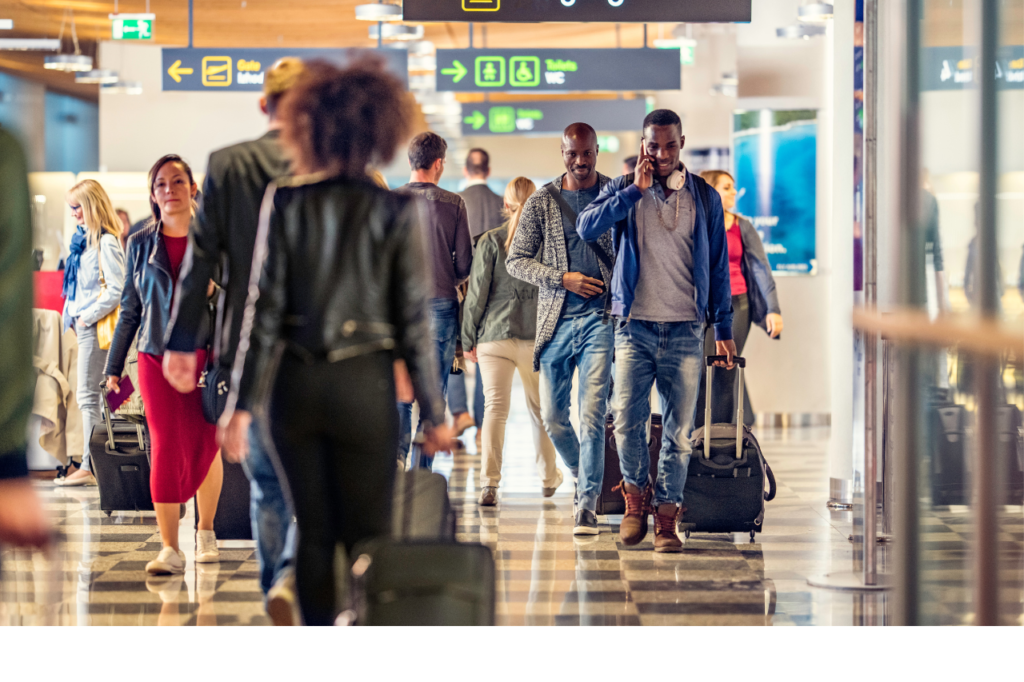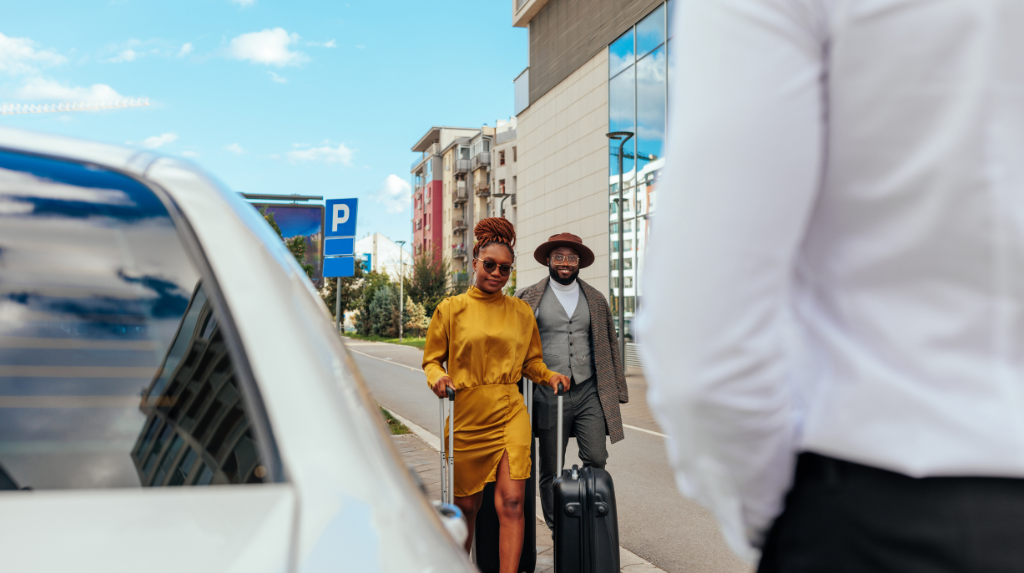A Germany Visit Visa is a short-stay visa that allows individuals to enter Germany for tourism, business, family visits, or cultural activities. This visa is part of the Schengen Visa category, enabling travelers to stay in Germany and other Schengen countries for up to 90 days within 180 days. The primary purpose of the visit visa is to facilitate short-term travel while promoting tourism and cultural exchange.
Benefits of a Germany Visit Visa
The benefits of obtaining a Germany Visit Visa include:
- Access to Multiple Countries: With a Schengen visa, travelers can move freely between all member states, enhancing travel flexibility.
- Cultural Experiences: Visitors can immerse themselves in Germany’s rich history, art, and cuisine.
- Business Opportunities: The visa allows participation in meetings and conferences, fostering international business relations.
Who Needs a Visit Visa to Enter Germany?
Visa requirements vary based on nationality:
- EU/EEA Nationals: Citizens of EU member states and EEA countries do not need a visa to enter Germany.
- Non-EU Nationals: Citizens from non-EU countries may need a visit visa. This includes individuals from countries with no visa waiver agreements with Germany.
To determine specific requirements, travelers should check with the German embassy or consulate in their home country.
Germany Visit Visa vs. Schengen Visa: What’s the Difference?
While the terms are often used interchangeably, there are distinctions:
- Germany Visit Visa: This specifically allows entry into Germany for short stays related to tourism, family visits, or business.
- Schengen Visa: A broader term that encompasses all short-stay visas issued by Schengen Area countries, allowing travel across multiple nations. A Schengen visa provides access to all member states, making it ideal for travelers planning to visit more than one country during their trip.
Types of Germany Visit Visas
Germany offers several types of visit visas based on travel needs:
- Single-Entry Visa: Allows one entry into Germany and is valid for a specific duration.
- Multiple-Entry Visa: Permits multiple entries within the validity period, ideal for frequent travelers.
- Duration-Based Visas: Depending on the purpose of the visit (tourism, business), these visas can vary in length but typically do not exceed 90 days.
Top Reasons to Visit Germany
Germany attracts millions of visitors each year for various reasons:
- Tourism: Famous landmarks such as Brandenburg Gate, Neuschwanstein Castle, and the Berlin Wall draw tourists from around the world.
- Business: As Europe’s largest economy, Germany hosts numerous trade fairs and business conferences.
- Family Visits: Many individuals travel to Germany to visit relatives or friends residing there.
- Cultural Attractions: Events like Oktoberfest and Christmas markets showcase German culture and traditions.
Eligibility Criteria for a Germany Visit Visa
To qualify for a Germany Visit Visa, applicants must meet specific criteria based on their nationality and purpose of travel. Generally, the following requirements apply:
- Nationality: Citizens of non-EU countries that do not have a visa waiver agreement with the Schengen Area must apply for a visa to enter Germany. EU/EEA nationals do not require a visa.
- Purpose of Visit: Applicants must clearly state the purpose of their visit, such as tourism, visiting family or friends, or business activities.
- Age and Health: Applicants should be at least 18 years old. Minors may require additional documentation from parents or guardians.
Documents Required for a Germany Visit Visa Application
When applying for a Germany Visit Visa, several documents are necessary to support the application:
- Valid Passport: The passport must be valid for at least three months beyond the intended departure date from the Schengen Area and should have been issued within the last ten years.
- Visa Application Form: A completed and signed application form is required, detailing personal information and travel plans.
- Photographs: Two recent passport-sized photographs that meet Schengen photo requirements.
- Financial Proof: Bank statements or proof of income to demonstrate financial stability during the stay in Germany.
- Travel Itinerary: A detailed itinerary including flight reservations and accommodation bookings.
- Travel Insurance: Proof of travel health insurance covering at least €30,000 in medical expenses.
Travel Insurance Requirements for a Germany Visit Visa
Travel insurance is mandatory for obtaining a Germany Visit Visa. The insurance must meet the following criteria:
- Minimum Coverage: The policy should provide coverage of at least €30,000 for medical emergencies, including repatriation costs.
- Approved Providers: Insurance must be purchased from providers recognized by German authorities or those listed in the Schengen visa regulations.
- Validity: The insurance should cover the entire duration of stay in Germany and other Schengen countries.
Financial Proof for a Germany Visit Visa Application
Applicants must demonstrate sufficient financial resources to support themselves during their visit:
- Bank Statements: Recent bank statements (usually for the last three months) showing sufficient funds to cover travel expenses.
- Sponsorship Letters: If applicable, sponsorship letters from family or friends in Germany detailing their willingness to cover expenses.
- Income Sources: Documentation proving stable income, such as employment contracts or pay slips, can also support financial claims.
Invitation Letter Requirements for a Germany Visit Visa
If visiting family or friends in Germany, an invitation letter is often required:
- Details Included: The letter should include the host’s full name, address, relationship to the visitor, purpose of visit, and duration of stay.
- Signature and Date: The host must sign and date the letter to validate it.
- Formal Invitation: For business visits, a formal invitation from a German company may be required, detailing the nature of the visit and any planned activities.
Step-by-Step Guide to Applying for a Germany Visit Visa
Applying for a Germany Visit Visa involves several steps to ensure a smooth application process. Here’s a comprehensive guide:
Step 1: Determine Eligibility
Before applying, confirm that you need a visit visa based on your nationality and the purpose of your visit. Citizens from non-EU countries typically require a visa, while EU/EEA nationals do not.
Step 2: Gather Required Documents
Prepare the necessary documents, which generally include:
- A valid passport with at least two blank pages and valid for at least three months beyond your intended departure from the Schengen Area.
- A completed visa application form.
- Recent passport-sized photographs.
- Proof of accommodation in Germany (hotel bookings or an invitation letter).
- Travel itinerary, including flight reservations.
- Financial proof (bank statements, sponsorship letters).
- Travel health insurance covers at least €30,000.
Step 3: Complete the Visa Application Form
Fill out the visa application form accurately. Ensure all information is correct and complete to avoid delays. Print and sign the form as required.
Step 4: Schedule an Appointment
Book an appointment at the nearest German embassy or consulate. You may be able to do this online or via phone. Ensure you schedule your appointment well in advance, especially during peak travel seasons.
Step 5: Attend the Appointment
On the day of your appointment:
- Arrive on time; late arrivals may be turned away.
- Bring all required documents and your completed application form.
- Submit your application and pay the visa fee (approximately €80 for adults).
Step 6: Biometrics Collection
During your appointment, biometric data (fingerprints and photos) will be collected. This process usually takes only a few minutes.
Step 7: Wait for Processing
After submitting your application, processing typically takes about 15 calendar days, but it can take longer in some cases. You can track the status of your application through the embassy or consulate’s website.
Step 8: Collect Your Visa
Once your visa is processed, you will be notified to collect your passport. If approved, it will contain your visa. If denied, you will receive a letter explaining the reasons for rejection.
Germany Visit Visa Fees and Processing Times
The visa fee for a Germany Visit Visa is approximately €80 for adults and €40 for children aged 6 to 12. Processing times generally range from 10 to 15 days, but applicants should allow extra time during busy periods or if additional documentation is required.
How to Apply for a Germany Visit Visa in [Your Country]
Application procedures can vary by country. Generally, you will need to visit the German embassy or consulate in your home country. Check their official website for specific instructions regarding document submission and appointment scheduling.
Role of VFS Global in Germany Visit Visa Applications
VFS Global serves as an intermediary service provider for visa applications. They assist applicants by:
- Offering information on required documents.
- Facilitating appointment bookings.
- Collecting applications and biometric data on behalf of the German consulate.
Using VFS Global can simplify the application process, especially in countries where they operate visa application centers.
How to Schedule and Prepare for a Germany Visit Visa Appointment
- Document Submission: Ensure all documents are organized according to the checklist provided by the embassy or VFS Global.
- Biometrics: Be prepared to provide biometric data during your appointment.
- Interview Tips: If an interview is required, practice answering questions about your travel plans and financial stability confidently.
Germany Visit Visa for Family and Friends
When visiting relatives or friends in Germany, applicants must meet specific requirements to obtain a Germany Visit Visa. The key requirements include:
- Invitation Letter: A signed invitation letter from the host in Germany is essential. This letter should include the host’s address, contact details, relationship to the visitor, and the purpose and duration of the visit.
- Proof of Relationship: Documentation proving the relationship with the host, such as birth certificates or marriage certificates, may be required.
- Financial Proof: Applicants must demonstrate sufficient financial means to support themselves during their stay. This can be shown through bank statements or sponsorship letters from the host.
- Travel Insurance: A valid travel health insurance policy covering at least €30,000 for medical emergencies is mandatory.
- Travel Itinerary: A detailed itinerary outlining planned activities and accommodation arrangements in Germany is also necessary.
Germany Visit Visa for Business Purposes
For those traveling to Germany for business meetings, conferences, or events, specific documentation is required:
- Invitation Letter: A formal invitation from the German company or organization detailing the purpose of the visit, including dates and activities.
- Business Registration: Proof of business registration or employment verification from the applicant’s employer may be needed.
- Travel Itinerary: Similar to family visits, a detailed travel itinerary outlining meetings and accommodations is necessary.
- Financial Proof: Applicants must provide evidence of sufficient funds to cover travel expenses during their stay.
How to Apply for a Germany Visit Visa as a Freelancer or Self-Employed Individual
Freelancers or self-employed individuals can apply for a visit visa by following these steps:
- Gather Required Documents: This includes a valid passport, completed visa application form, photographs, proof of financial stability (bank statements), and an invitation letter if visiting clients or collaborators in Germany.
- Demonstrate Business Activities: Provide documentation that outlines the purpose of your visit related to your freelance work, such as contracts or letters from clients.
- Submit Application: Apply through the German embassy or consulate in your country, ensuring all documents are complete and accurate.
Germany Visit Visa for Children and Minors
When minors are involved in a visa application, additional requirements apply:
- Parental Consent: If traveling alone or with one parent, a notarized consent letter from both parents is typically required.
- Birth Certificate: A copy of the child’s birth certificate may be needed to establish parental relationships.
- Travel Insurance: Just like adult applicants, minors must have valid travel health insurance covering their stay in Germany.
What to Do If Your Germany Visit Visa Application is Rejected
If your application is denied, consider these steps:
- Understand the Reasons: Carefully read the rejection letter to understand why your application was denied. Common reasons include insufficient financial proof, incomplete documentation, or failure to demonstrate ties to your home country.
- Gather Additional Evidence: Address the reasons for rejection by collecting any additional documentation that supports your case.
- Appeal Process: You can appeal the decision by submitting a formal appeal letter along with supporting documents to the relevant German authority within one month of receiving the rejection notice.
- Reapply if Necessary: If appealing does not seem viable or is unsuccessful, consider reapplying with improved documentation and addressing previous concerns.
How to Create a Travel Itinerary for a Germany Visit Visa Application
A well-structured travel itinerary is essential for your Germany Visit Visa application. It demonstrates your travel plans and intentions, helping to strengthen your application. Here’s how to create an effective itinerary:
Sample Travel Itinerary
Day 1: Arrival in Berlin
- Depart from [Your Country] and arrive in Berlin.
- Check-in at [Hotel Name, Address].
- Evening: Explore the local area and have dinner at a nearby restaurant.
Day 2: Berlin Sightseeing
- Morning: Visit the Brandenburg Gate and Reichstag Building.
- Afternoon: Explore Museum Island.
- Evening: Take a boat tour on the Spree River.
Day 3: Day Trip to Potsdam
- Morning: Take a train to Potsdam (30-minute journey).
- Visit Sanssouci Palace and Gardens.
- Evening: Return to Berlin for dinner.
Day 4: Travel to Munich
- Morning: Take a train from Berlin to Munich (approx. 4 hours).
- Check-in at [Hotel Name, Address].
- Afternoon: Visit Marienplatz and the New Town Hall.
Day 5: Munich Exploration
- Morning: Tour the Nymphenburg Palace.
- Afternoon: Visit the English Garden.
- Evening: Dinner at a traditional Bavarian beer garden.
Day 6: Day Trip to Neuschwanstein Castle
- Full-day tour of Neuschwanstein Castle, including transportation from Munich.
Day 7: Departure
- Check out from the hotel.
- Depart from Munich back to [Your Country].
This itinerary provides a clear outline of your travel plans, demonstrating intent and organization.
Top Tourist Destinations in Germany for Visitors
Germany boasts numerous must-see destinations, including:
- Berlin: The capital city is rich in history, featuring landmarks like the Brandenburg Gate and Berlin Wall.
- Munich: Known for its beer gardens and the annual Oktoberfest celebration.
- Cologne: Famous for its stunning cathedral (Kölner Dom) and vibrant arts scene.
- Hamburg: A major port city with attractions like the Elbphilharmonie concert hall and historic Speicherstadt.
Best Time to Visit Germany for Tourists
The best time to visit Germany varies by preference:
- Spring (March to May): Mild weather and blooming flowers; ideal for outdoor activities and festivals.
- Summer (June to August): Warm temperatures; popular for tourism, but also crowded at major attractions.
- Autumn (September to November): Beautiful fall foliage, especially in Bavaria; Oktoberfest occurs in late September.
- Winter (December): Magical Christmas markets are held throughout the country, offering unique cultural experiences.
How to Book Accommodation for Your Germany Visit Visa Application
When booking accommodation, ensure it meets visa requirements:
- Hotels: Choose reputable hotels that provide confirmation letters upon booking.
- Hostels: Affordable options that often cater to tourists; ensure they offer booking confirmations.
- Temporary Rentals: Platforms like Airbnb can be used, but ensure you have a clear rental agreement.
Make sure your accommodation details align with your travel itinerary.
Tips for Booking Flights for a Germany Visit Visa Application
When securing flights:
- Round-trip Tickets: Book round-trip flights to demonstrate your intention to return home after your visit.
- Refundable Tickets: Consider purchasing refundable or flexible tickets in case of changes in travel plans.
- Tentative Bookings: Some airlines allow you to hold reservations temporarily without payment; this can be useful while waiting for visa approval.
Common Mistakes to Avoid When Applying for a Germany Visit Visa
Applying for a Germany Visit Visa can be a straightforward process if you avoid common pitfalls. Here are some mistakes to watch out for:
- Incomplete Documentation: One of the most frequent errors is failing to include all required documents. Ensure that you provide a valid passport, completed visa application form, photographs, proof of accommodation, travel itinerary, and financial proof. Missing any of these can lead to immediate rejection.
- Incorrect Forms: Filling out the visa application form incorrectly can cause delays or denials. Double-check that all information matches your supporting documents, including your name, passport number, and travel dates.
- Insufficient Financial Proof: Applicants must demonstrate they have enough funds to cover their stay in Germany. Failing to provide adequate bank statements or sponsorship letters can result in rejection.
- Not Preparing for the Interview: If an interview is part of the process, being unprepared can harm your chances. Familiarize yourself with your travel plans and be ready to answer questions about your itinerary and financial situation.
How to Write a Convincing Cover Letter for a Germany Visit Visa
A well-crafted cover letter can enhance your visa application:
- Format: Use a formal business letter format. Include your name, address, and contact information at the top, followed by the date and the consulate’s address.
- Key Details: Clearly state your purpose for visiting Germany, the duration of your stay, and your planned itinerary. Mention any ties to your home country that will ensure your return after the visit.
- Personal Touch: Briefly explain why you want to visit Germany (e.g., tourism, family visit) and express your commitment to adhering to visa regulations.
Tips for a Smooth Germany Visit Visa Interview
To prepare for your visa interview:
- Common Questions: Be ready to answer questions about your travel plans, financial situation, and ties to your home country. Typical questions include:
- What is the purpose of your visit?
- How will you support yourself during your stay?
- Do you have any relatives or friends in Germany?
- Answer Confidently: Practice your responses beforehand to ensure clarity and confidence during the interview.
- Documentation: Bring all required documents neatly organized in a folder for easy access during the interview.
How to Handle Delays in Germany Visit Visa Processing
If you experience delays in processing:
- Check Application Status: Contact the German embassy or consulate where you applied to inquire about the status of your application.
- Be Patient: Processing times can vary based on several factors, including peak travel seasons or additional documentation requests.
- Gather Additional Documents: If requested, promptly provide any additional information or documentation needed to support your application.
How to Prove Ties to Your Home Country for a Visit Visa
Demonstrating ties to your home country is crucial for a successful visa application:
- Employment Evidence: Provide proof of employment, such as a letter from your employer stating your position and leave approval.
- Family Connections: Include documentation showing family ties in your home country (e.g., marriage certificate, birth certificates of children).
- Property Ownership: If applicable, provide property deeds or rental agreements as evidence of stability and intent to return home after visiting Germany.
What to Do After Receiving Your Germany Visit Visa
Once you receive your Germany Visit Visa, it’s essential to prepare thoroughly for your trip. Here are the final checks and travel preparations to consider:
- Check Visa Details: Verify that all information on your visa is correct, including your name, dates of validity, and entry type (single or multiple). Ensure it aligns with your travel plans.
- Finalize Travel Arrangements: Confirm your flight bookings and accommodation. Ensure you have printed copies of your itinerary, hotel reservations, and any other relevant travel documents.
- Prepare Necessary Documents: Organize all essential documents such as your passport, visa, travel insurance, and financial proof in a secure folder for easy access during your travels.
- Plan Your Itinerary: Outline your daily activities in Germany, including sightseeing, meetings, or family visits. This will help you make the most of your time there.
How to Extend a Germany Visit Visa While in Germany
If you need to extend your stay in Germany beyond the validity of your visit visa, you must meet specific conditions:
- Valid Reasons for Extension: Acceptable reasons include medical emergencies or unforeseen circumstances that prevent you from leaving Germany as planned.
- Application Process: To apply for an extension, visit the local Foreigners’ Office (Ausländerbehörde) before your current visa expires. You will need to submit a formal request along with supporting documents explaining why you need the extension.
- Documentation: Be prepared to provide evidence such as medical reports or other relevant documentation supporting your request.
- Processing Time: Extensions are not guaranteed and may take time for processing; therefore, apply as early as possible.
Schengen Zone Travel with a Germany Visit Visa
With a Germany Visit Visa, you can also travel within the Schengen Zone:
- Travel Rules: The visa allows for travel to other Schengen countries for up to 90 days within 180 days. Ensure that your travels comply with the visa’s validity dates.
- Visa Validity: Always carry your passport and visa when traveling to other Schengen countries, as border checks may occur.
- Accommodation Proof: If visiting multiple countries, be prepared to show proof of accommodation in each location.
Rights and Restrictions of a Germany Visit Visa Holder
As a holder of a Germany Visit Visa, you have specific rights and restrictions:
Rights:
- You can stay in Germany and travel within the Schengen Zone.
- You have the right to access emergency medical services if needed.
- You can participate in tourism-related activities.
Restrictions:
- You cannot engage in paid employment or business activities.
- You must adhere to the duration of stay specified on your visa.
- You cannot extend your stay without valid reasons or proper application procedures.
How to Prove Ties to Your Home Country for a Visit Visa
Demonstrating strong ties to your home country is crucial for a successful visit visa application:
- Employment Evidence: Provide an employment letter confirming your position and approved leave from work.
- Family Connections: Include documentation showing family ties in your home country, such as birth certificates or marriage certificates.
- Property Ownership: If applicable, provide property deeds or rental agreements that indicate stability and intent to return after visiting Germany.
- Financial Stability: Show bank statements that reflect regular income or savings accounts that support your return plans.
Recent Changes to Germany Visit Visa Policies
Germany has recently updated its visit visa policies to adapt to changing immigration needs and improve processing efficiency. Key updates include:
- Increased Fees: As of June 11, 2024, the fee for a Schengen visa, including the Germany Visit Visa, has risen to €90 for adults and €45 for children aged 6 to 12. This change reflects the rising costs associated with processing applications.
- Processing Times: The processing time for a Germany Visit Visa typically ranges from 10 to 15 days, but applicants are encouraged to apply well in advance, especially during peak travel seasons when delays may occur.
- Documentation Requirements: There is an increased emphasis on providing comprehensive documentation, including proof of accommodation, financial stability, and a detailed travel itinerary. This ensures that applicants demonstrate their intent and ability to support themselves during their stay.
Impact of COVID-19 on Germany Visit Visa Applications
The COVID-19 pandemic has significantly influenced visa application processes:
- Health Regulations: Travelers entering Germany must adhere to specific health regulations, which may include proof of vaccination or negative COVID-19 test results. These requirements can vary based on the current public health situation.
- Updated Travel Guidelines: The German government has implemented flexible travel guidelines that allow for changes in entry requirements based on the evolving pandemic situation. Applicants should regularly check the German embassy’s website for the latest information before traveling.
- Remote Processing Options: Some consulates have introduced remote submission options or virtual interviews to accommodate applicants during health crises, although this varies by location.
Germany’s Digital Nomad-Friendly Policies: Does a Visit Visa Work?
The Germany Visit Visa is not specifically designed for digital nomads; however, it can be utilized by freelancers or remote workers who wish to explore Germany while working online. Here are some considerations:
- Permitted Activities: Holders of a visit visa cannot engage in paid employment within Germany; therefore, digital nomads must ensure their work does not violate visa conditions.
- Alternative Options: Digital nomads seeking longer stays may consider applying for a residence permit tailored for freelancers or self-employed individuals, which allows for legal work in Germany.
How to Travel Around Germany as a Tourist
Traveling around Germany is convenient and efficient due to its extensive public transport network:
- Public Transport: Cities like Berlin, Munich, and Hamburg offer reliable public transportation systems, including buses, trams, and trains. The Deutsche Bahn (DB) operates intercity trains that connect major cities efficiently.
- Car Rentals: For more flexibility, renting a car is an option, especially for exploring rural areas or smaller towns.
- Cost-Effective Options: Consider purchasing regional travel passes or the German Rail Pass for unlimited travel within specific timeframes at reduced rates.
Cultural Etiquette for Visitors in Germany
Understanding cultural etiquette is essential for a positive experience in Germany:
- Punctuality: Germans value punctuality; arriving on time is seen as a sign of respect.
- Direct Communication: Be prepared for straightforward communication styles; Germans appreciate honesty and clarity.
- Dining Etiquette: When dining out, wait for the host to invite you to sit and always say “Guten Appetit” before starting your meal.
Top German Festivals to Attend While on a Visit Visa
Germany is renowned for its vibrant festival culture, offering a diverse range of events throughout the year. Here are some top festivals to consider attending while on a visit visa:
- Oktoberfest (Munich): Held annually from late September to the first weekend in October, Oktoberfest is the world’s largest beer festival, attracting millions of visitors. Enjoy traditional Bavarian food, music, and, of course, a variety of beers in massive tents.
- Christmas Markets (Various Cities): Starting in late November and running through December, Germany’s Christmas markets are magical experiences filled with festive lights, handcrafted gifts, and delicious seasonal treats like mulled wine and gingerbread. Notable markets include those in Nuremberg, Dresden, and Cologne.
- Karneval (Cologne): Known as the “fifth season,” Karneval takes place in February and features vibrant parades, elaborate costumes, and street parties. The highlight is the Rose Monday Parade, where colorful floats and marching bands fill the streets.
- Reeperbahn Festival (Hamburg): This is Europe’s largest club festival, held in September. It showcases new music talent across various genres with over 360 concerts and events in Hamburg’s famous Reeperbahn district.
- Berlinale Film Festival (Berlin): Taking place in February, this prestigious film festival attracts filmmakers and cinema lovers from around the world. It features numerous screenings, premieres, and events celebrating both international and German cinema.
- Wacken Open Air: For metal fans, this festival held in August is a must-visit. It is one of the largest heavy metal festivals globally, featuring performances from top bands and a lively atmosphere.
Sustainable Travel Tips for Visiting Germany
Traveling sustainably in Germany can enhance your experience while minimizing your environmental impact:
- Eco-Friendly Accommodations: Look for hotels or hostels that emphasize sustainability practices such as energy efficiency, recycling programs, and locally sourced food.
- Public Transport: Utilize Germany’s extensive public transport system to reduce your carbon footprint. Trains, trams, and buses are efficient ways to travel between cities and within urban areas.
- Bicycle Rentals: Consider renting a bicycle to explore cities like Berlin or Munich. Many cities have bike-sharing programs that promote eco-friendly travel.
- Support Local Businesses: Choose local restaurants and shops to support the community and reduce transportation emissions associated with imported goods.
How to Appeal a Rejected Germany Visit Visa Application
If your visit visa application is rejected:
- Understand the Reasons: Review the rejection letter carefully to identify specific reasons for denial.
- Gather Additional Evidence: Collect any documents that address the concerns raised in the rejection letter.
- File an Appeal: Submit a formal appeal within one month of receiving the rejection notice. Include a cover letter explaining your case along with supporting documentation.
- Consider Reapplying: If appealing is not successful or feasible, you may choose to reapply with improved documentation addressing previous issues.
How to Secure a Sponsor for Your Germany Visit Visa
If you plan to have someone sponsor your visit:
- Who Qualifies: A sponsor can be a family member or friend residing in Germany who can financially support your stay.
- Prepare Documents: The sponsor should provide an invitation letter detailing their relationship with you, their address, and their willingness to cover expenses during your visit.
- Financial Proof: Your sponsor must also submit proof of financial stability (e.g., bank statements) to demonstrate their ability to support you during your stay.
In summary, attending festivals like Oktoberfest or Christmas markets can enrich your experience while visiting Germany on a visa. Sustainable travel practices can enhance your journey while minimizing environmental impact. If faced with visa rejection, understanding the appeal process is crucial for future applications or reapplications.
How Law and Visas Can Help?
At Law and Visas, our team of expert immigration consultants is here to make your travel to Germany straightforward and successful. Whether you’re applying for a Visitor Visa or a Study Visa, we handle every step from preparing your application to gathering the required documents.
Our immigration Consultants and Lawyers ensure that your application meets the highest standards, with no details missed. We’ll also keep you informed throughout the process and coordinate with the immigration office or embassy on your behalf.
Law and Visas has a strong record of helping clients secure the visas/permits they need in Germany. Call us today at +234 812 5505 986 to learn how we can assist you.





